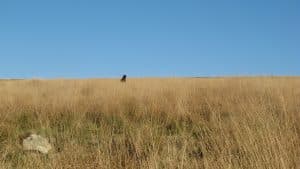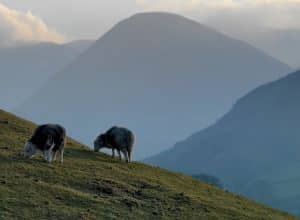Support us from £3/month
We deal with almost 1000 cases a year assisting communities, groups and individuals in protecting their local spaces and paths in all parts of England and Wales. Can you help us by joining as a member?
In her Opinion article in the autumn issue of Open Space magazine, our general secretary, Kate Ashbrook, writes about the Agriculture Bill.
Last summer the Dartmoor Society (a voluntary body) hosted a visit to Gidleigh Common on north-east Dartmoor. Those present were shocked to see the land there smothered in purple moor-grass and gorse, where once there had been heather. Now the vegetation engulfs the rich collection of prehistoric remains: stone rows, field systems and cairns, and confines right-to-roam public access to narrow tracks.
The cause of this degradation is the grazing regime imposed by Natural England: a reduction in livestock, a ban on winter grazing and a limit on the area of land to be swaled (ie burnt to rejuvenate the heather). Dartmoor needs a different prescription from England’s northern uplands, each area is unique. But the agricultural grants and their stipulations have been applied in a blanket fashion.
Solution
The Agriculture Bill, which is now in parliament, could provide a solution—so long as it requires ministers to act. So far its wording is vague, with good intention (public money for public goods) but no duty on anyone to do anything.
The bill gives the secretary of state powers to make payments for ‘managing land in a way that maintains, restores or enhances cultural heritage or natural heritage’. That should mean that landowners and commoners will receive payments in return for managing their stock so as to avoid the sort of blight afflicting Gidleigh Common, and to restore such land to its former health. But that will require flexibility which is not evident on the face of the bill.
It is excellent that ‘supporting public access’ comes in the list of public goods which will attract funding, but this is only discretionary. It must be made mandatory and must embrace improvement and creation of public access—as we have recommended to MPs.
Docked
The bill offers no guarantee that those receiving money will do what they are being paid to do—or that, if they break the law, their grants will be docked.
Currently, farmers receiving subsidies under the Common Agricultural Policy must adhere to cross compliance, which includes keeping public paths on their land in good order. But enforcement of this excellent principle is weak: breaches reported to the Rural Payments Agency are rarely followed up.
The new legislation should require farmers and land managers to obey the law on their land. The public must be able readily to check whether a farmer is receiving a grant, to report a breach such as a blocked path, and to know when it has been dealt with. Such a process will also help impoverished highway authorities to tackle path problems.
We shall urge amendments to make the bill work.


